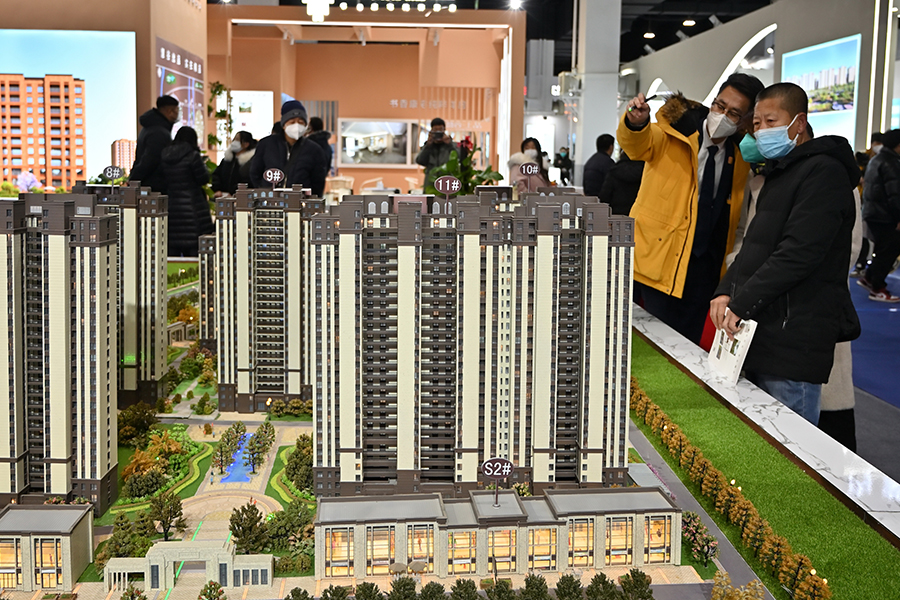Making Du Fu's housing dream come true


Editor's note: With the aim to make people's lives more convenient, comfortable and better, the Chinese government has implemented the renovation of old urban residential communities in an effort to make cities more livable, writes a veteran journalist with China Daily.
While taking my routine after-lunch walk recently, I noticed some trucks shuttling in and out of an old residential complex about 500 meters from my apartment. I found out that the former residents were moving in after their old apartment buildings had been renovated.
The residents were beneficiaries of an on-going national project aimed at renovating old and dilapidated buildings. China started the project five years ago, renovating about 50,000 such communities in 2021 and 2022.
According to the project's planners, the apartment buildings that are being renovated are those that were constructed before the turn of this century. Nationwide, it is estimated, there are at least 170,000 such old building compounds, accommodating more than 42 million families.
Each compound is usually composed of several old buildings. The renovated compound near my home, for instance, has eight buildings, with four of them having been renovated while the rest are still on the waiting list.
Funds for the renovation come from governments at various levels, with the central government putting in a lion's share. The beneficiaries usually don't have to pay a penny and the government subsidizes their rent during the renovation period — usually lasting a year — when they need to live elsewhere.
"I can't wait to get a new taste of my old house," said an elderly grandmother who was helping workers unload furniture from a truck. She said balconies had been constructed in the front and back of the building, adding about 10 square meters to each apartment.
China has worked out an ambitious plan to renovate all old and dilapidated buildings within the next few years, investing anything between 1.2 trillion yuan and 4 trillion yuan ($173.75 billion and $579.14 billion), depending on construction standards and service facilities.
Apart from giving the buildings a facelift, the renovation also includes renewal of power lines, water and gas connections and the sewage systems. In the cold northern areas, insulation layers are being added, new windows getting installed and heating systems changed. Walls of staircases and corridors are sometimes reinforced and then whitewashed.
The projects also include building of more parking lots, installation of body-building facilities and tree planting inside the complexes. Where residents are willing to pay their share, elevators are being installed with government subsidies.
The renovation being carried out near my home is but one of more than 400 such construction projects on-going in Beijing alone. Last year, the local government put in over 1 billion yuan into the project, helping to improve living quality for thousands of its residents.
Behind the smiling faces of the moving-in residents is the fact that after the renovations the apartments' value can appreciate between 20-30 percent, not to forget the added living space.
The on-going renovation project is but a follow-up of a 15-year-old squatter settlement rebuilding project. That project focused on improving housing conditions for people who live in shanties formerly built by State-owned mines, factories and farms for their employees. Many such enterprises either went bankrupt or are unable to pay their employees handsomely, making it difficult to maintain the settlements or enable their employees to buy new homes.
Organized by the central authorities and invested by governments at different levels, new settlements were built for those people who can move in free or pay a preferential sum of money if they want to expand living space.
In the past decade or so, millions of apartments have been built, accommodating well over 100 million people.
When the thatched roof of his hut was blown away in a storm, Chinese poet Du Fu (712-770) exclaimed: "It's rather hard to have enough houses to settle those who are suffering from cold. It's my dream to give warmth and wealth to comfort those who are suffering from poverty."
China is working to make the poet's dream come true. Thumbs up to that effort!
The author is former deputy editor-in-chief of China Daily. kangbing@chinadaily.com.cn
If you have a specific expertise, or would like to share your thought about our stories, then send us your writings at opinion@chinadaily.com.cn, and comment@chinadaily.com.cn.
































